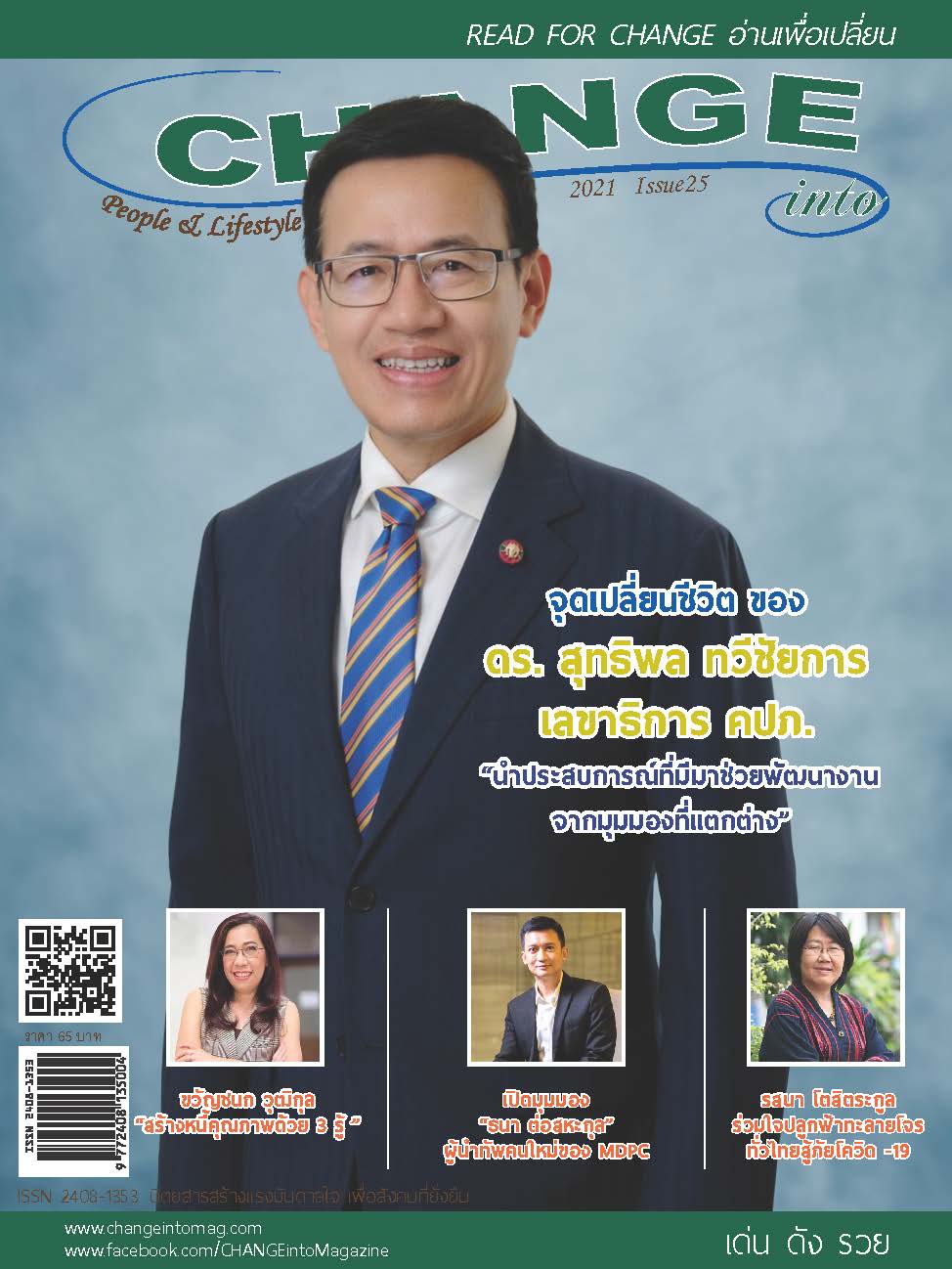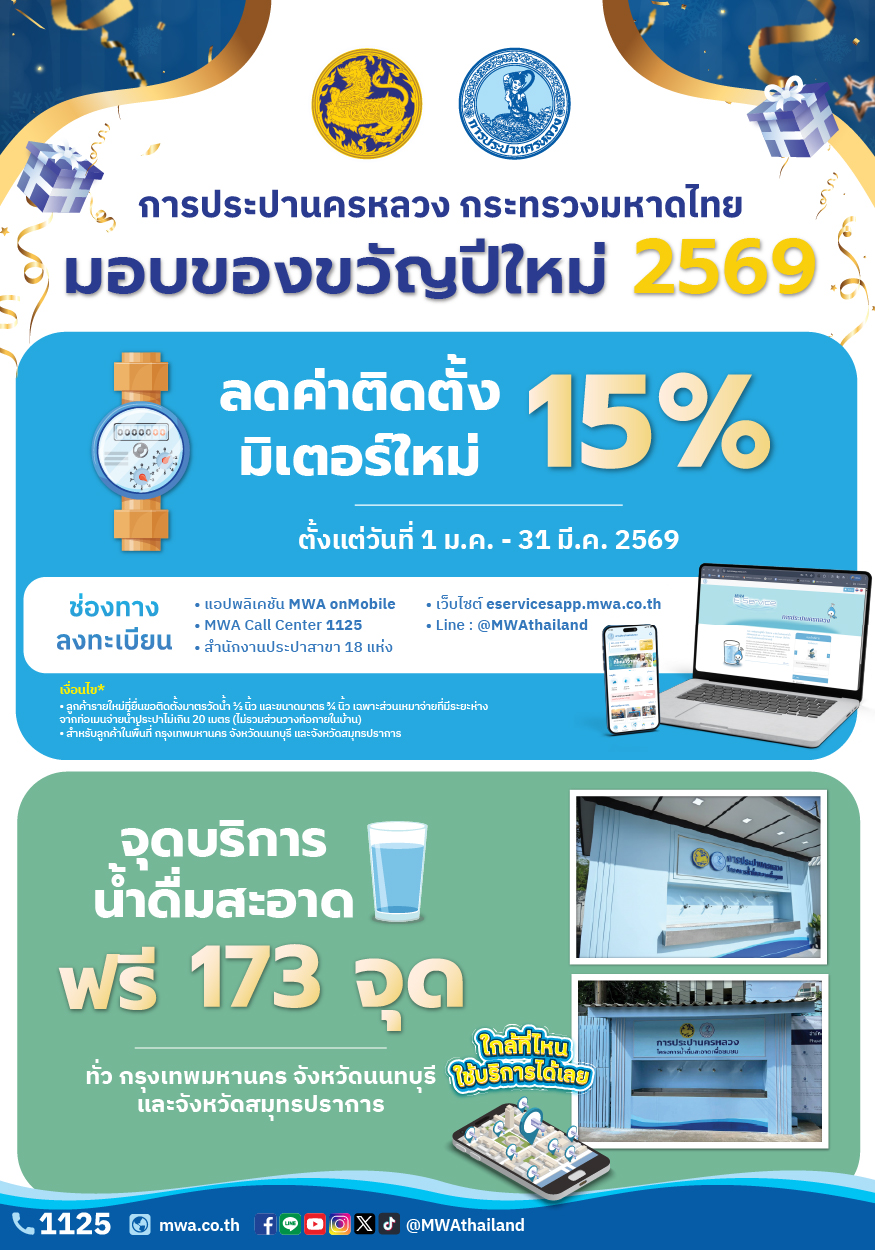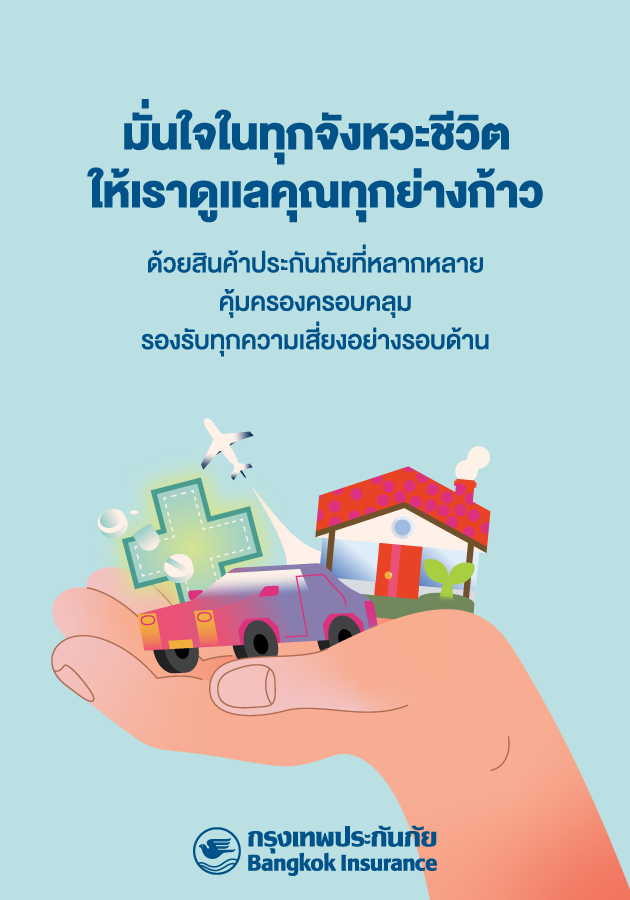ผลการวิจัย AXA Mind Health Index เผย Gen Z

ผลการวิจัย AXA Mind Health Index เผย Gen Z
มากกว่าครึ่งในเอเชีย กำลังมีสุขภาพจิตย่ำแย่
ในขณะที่ประเทศไทยมีจำนวนคนที่มีสุขภาพจิตดีสูงสุด
ในขณะที่การแพร่ระบาดของโควิด-19 ส่งผลกระทบต่อสุขภาพจิตใจของคนในสังคมอย่างมาก ผลการวิจัยล่าสุดจาก AXA Study of Mind Health and Wellbeing ประจำปี 2566 ได้เปิดเผยว่ากลุ่มคน Gen Z (อายุ 18-24 ปี) ได้รับผลกระทบเป็นอย่างมาก และมากกว่าครึ่งหนึ่งของคนกลุ่ม Gen Z ทั่วโลก (53%) และในเอเชีย (51%) มีสุขภาพจิตที่ย่ำแย่ ผลการวิจัยดังกล่าวระบุถึง ความท้าทายที่กลุ่มคน Gen Z ต้องเผชิญในที่ทำงาน ขณะเดียวกันก็เน้นย้ำถึงความจำเป็นที่นายจ้างจะต้องปรับการสนับสนุนคนในองค์กร ให้เหมาะกับความต้องการเพื่อรับมือกับการลาออกที่เพิ่มขึ้นของบุคลากรรุ่นใหม่ที่มีความสามารถ
การวิจัยพบว่ากลุ่มคน Gen Z มีสัดส่วนสูงสุดที่เผชิญกับความเครียดทางอารมณ์และความบกพร่องทางจิตใจ โดยทั่วโลกมีสัดส่วนถึง 18% และ 14% ในเอเชีย ซึ่งมากกว่ากลุ่มอายุอื่นๆ ในขณะที่ทั่วโลกกลุ่มคนอายุระหว่าง 18-24 ปี มีเพียง 13% เท่านั้นที่มีสุขภาพจิตใจแข็งแรง และในเอเชียมีสัดส่วน 15% ซึ่งต่ำที่สุดในทุกกลุ่มอายุ ทำให้กลุ่มคนอายุ 18-24 ปีเป็นกลุ่มเดียวที่มีภาวะด้านความเครียดทางอารมณ์สูงกว่าทุกกลุ่ม
กลุ่ม Gen Z แสดงความสามารถในการทำงานภายใต้ความเครียดได้ดีกว่า แม้ว่าส่วนใหญ่คิดจะลาออก
ในที่ทำงานในภูมิภาคเอเชีย ผลสำรวจเผยให้เห็นว่า กลุ่มคน Gen Z เป็นกลุ่มคนที่มีพรสวรรค์แต่ได้รับผลกระทบจากความท้าทายที่สำคัญหลายประการ ซึ่งอาจส่งผลกระทบต่อสุขภาพจิตใจของพวกเขา สิ่งเหล่านี้รวมถึงความไม่แน่นอนเกี่ยวกับอนาคต (69% เทียบกับ 59% ทั่วโลก) การดิ้นรนเพื่อแยกชีวิตการทำงานและชีวิตส่วนตัว (49% เทียบกับ 39% ทั่วโลก) ภาวะการยอมรับการเปลี่ยนแปลงในที่ทำงาน (47% เทียบกับ 38% ทั่วโลก) และขาดทักษะที่เหมาะสมกับงาน (14% เทียบกับ 9% ทั่วโลก) โดยปัจจัยสุดท้ายนี้ มีความสัมพันธ์อย่างมากกับสุขภาพจิตที่ดี โดยผลจากการวิจัย ผู้ที่มีทักษะการทำงานที่เหมาะสมนั้น จะมีแนวโน้มที่จะทำงานได้ดีที่สุดถึง 2.5 เท่า
ผลการวิจัยยังแสดงให้เห็นว่ากลุ่มอายุ 18-24 ปีในเอเชีย มีสัดส่วนสูงสุดในความคิดที่ตั้งใจจะลาออกในอีก 12 เดือนข้างหน้า (21%) ผลสำรวจพบข้อบ่งชี้ชัดเจนว่ากลุ่มอายุ 18-24 ปีที่กำลังมีสุภาพจิตที่ดีมีแนวโน้มลาออกน้อยกว่า โดยมีเพียง 16% เท่านั้น ซึ่งสอดคล้องถึงความสำคัญของการมีสุขภาพจิตที่ดี กับการรักษาพนักงานให้ทำงานในองค์กรได้อย่างมีประสิทธิภาพ
การสนับสนุนด้านสุขภาพจิตในที่ทำงานมีบทบาทสำคัญในสุขภาพจิตองค์รวม
การสนับสนุนด้านสุขภาพจิตในที่ทำงาน ได้กลายเป็นเรื่องสำคัญในช่วงที่เกิดโรคระบาด การวิจัยยังเผยให้เห็นว่าในเอเชีย บริษัทที่ให้การสนับสนุนด้านสุขภาพจิต มีแนวโน้มที่จะมีพนักงานทีมีความสุขสูงกว่า 2.5 เท่า ในขณะที่ 1 ใน 4 ของพนักงาน Gen Z ที่รู้สึกว่าพวกเขาได้รับการสนับสนุนด้านสุขภาพจิตที่ดีในที่ทำงาน มีความสุข ซึ่งอัตรานี้มีเพียง 1 ใน 100 ของกลุ่มคนที่ไม่ได้รับการสนับสนุนดังกล่าว ซึ่งเป็นความแตกต่างที่ใหญ่ที่สุดในทุกกลุ่มอายุ สิ่งนี้บ่งชี้ว่า การสนับสนุนด้านสุขภาพจิตในที่ทำงานมีผลกระทบมากที่สุดต่อสุขภาพจิตของ Gen Z ทำให้กลุ่มนี้เป็นเป้าหมายสำคัญสำหรับการแก้ปัญหาดังกล่าว
กอร์ดอน วัตสัน ประธานกรรมการบริหารแอกซ่าเอเชีย และแอฟริกา กล่าวว่า “ในขณะที่สุขภาพจิตใจได้รับความสนใจมากขึ้น หลังจากเกิดวิกฤตการแพร่ระบาดที่ส่งผลกับชีวิตของเราทุกคน ผลวิจัยนี้ เน้นย้ำว่าคนรุ่นใหม่ที่มีความสามารถทั่วเอเชียกำลังเผชิญกับความท้าทายอย่างมาก บริษัทจำเป็นต้องพิจารณาว่า พวกเขาสามารถสร้างความแตกต่างที่เป็นรูปธรรมด้วยการสนับสนุนที่เกี่ยวข้องกับความต้องการของพนักงาน Gen Z ได้อย่างไร ไม่เพียงแต่ช่วยในด้านประสิทธิภาพ และการรักษาลูกค้าเท่านั้น แต่ยังต้องจัดการกับปัญหาเร่งด่วนที่ส่งผลกระทบต่อสังคมทั่วทั้งภูมิภาคอีกด้วย”
บุปผาวดี โอวรารินท์ ประธานเจ้าหน้าที่บริหาร ฝ่ายทรัพยากรบุคคล และภาพลักษณ์องค์กรและการสื่อสารองค์กร กล่าวว่า “ปีนี้เป็นปีแรกที่กลุ่มแอกซ่า มีการศึกษาเรื่องสุขภาพจิตที่ครอบคลุมข้อมูลในประเทศไทยไว้ด้วย โดยผลการวิจัยจากหลายประเทศในครั้งนี้พบว่า ประเทศไทยมีจำนวนประชากรที่มีสุขภาพจิตดีสูงที่สุด นอกจากนี้ 66% ของกลุ่มคน Gen Z ในประเทศไทยรู้สึกว่าตนเองมีทักษะการทำงานที่เหมาะสม ซึ่งสูงกว่าค่าเฉลี่ยจากทั่วโลก ทั้งนี้ กรุงไทย-แอกซ่า ประกันชีวิตเรายังคงมุ่งมั่นที่จะสร้างองค์กรให้เป็นสถานที่ทำงานที่ดีที่สุด รวมถึงส่งเสริมให้พนักงานมีความสุขในการทำงาน และเติบโตไปพร้อมกับองค์กร อีกทั้งยังให้ความสำคัญด้านการยอมรับความหลากหลายของพนักงาน ช่องว่างระหว่างวัย ของกลุ่ม Gen Z และกลุ่มอื่นๆ ซึ่งสอดคล้องกับคำมั่นสัญญาของ Employer Brand Promise คือ "การเสริมพลังศักยภาพของพนักงานที่มุ่งสู่ความสำเร็จ"
ผู้คนในเอเชียโดยรวมมีสุขภาพจิตที่ดีขึ้น เชื่อว่าเพราะอคติที่มีต่อเรื่องสุขภาพจิตมีน้อยลง
ผลการวิจัยพบว่าสัดส่วนของประชากรที่มีสุขภาพจิตที่ดีในเอเชียเพิ่มขึ้นจาก 19% เป็น 22% โดยเอเชียมีสัดส่วนที่สูงกว่าค่าเฉลี่ยทั่วโลก ในทางตรงกันข้าม สัดส่วนของผู้ที่ประสบปัญหาทางสุขภาพจิตที่ต้องดิ้นรนในเอเชียลดลง 2% เหลือ 12% เมื่อเทียบกับปีก่อน ซึ่งแสดงให้เห็นถึงสภาวะทางจิตใจที่ดีขึ้นในภาพรวม นอกจากนี้ 36% ของผู้ตอบแบบสำรวจทั่วโลกยอมรับว่า ตนไม่รู้สึกผิดหากมีปัญหาด้านสภาวะทางจิตใจ เมื่อเทียบกับสัดส่วนปีก่อนที่ 31%
ผลการวิจัยพบว่า 25% ของผู้คนทั่วโลกมีสุขภาพจิตที่ดีขึ้น โดยประเทศไทย (36%) ซึ่งเป็นประเทศที่เข้าร่วมการศึกษาครั้งแรก ผลการวิจัยอยู่ในอันดับที่ดี ในขณะที่ประเทศอิตาลี (18%) อยู่ในระดับต่ำสุด และเมื่อพิจารณาประเทศและภูมิภาคในเอเชียอย่างใกล้ชิด ผลสำรวจพบว่า คนในฟิลิปปินส์สามารถข้ามผ่านภาวะนี้ได้สูงสุดอยู่ที่ 39% ตามมาด้วยฮ่องกงที่ 37% ทั้งนี้ผู้คนในญี่ปุ่นยังคงเผชิญกับความเหน็ดเหนื่อยและต้องดิ้นรน สูงถึง 31% และ 14% ตามลำดับ
ท่านสามารถศึกษารายละเอียดเพิ่มเติมของผลวิจัยได้ที่ AXA Study of Mind Health and Wellbeing 2023 ได้ที่ axafittoflourish.com
สำหรับท่านที่ต้องการสอบถามข้อมูลเพิ่มเติมเกี่ยวกับบริษัทฯ และผลิตภัณฑ์ประกันชีวิต สามารถติดต่อได้ที่ ศูนย์ลูกค้าสัมพันธ์ โทร. 1159 ทุกวันตลอด 24 ชั่วโมง หรือ https://www.krungthai-axa.co.th/th

AXA Mind Health Index reveals more than half of Gen Z in Asia
are suffering from poor mental health
whereas Thailand is highest number of flourishing people
While the COVID-19 pandemic has taken a heavy toll on mind health across society, the latest findings from the annual AXA Study of Mind Health and Wellbeing 2023 has revealed that Gen Z (aged 18-24) appears to be taking the brunt of the impact, with more than half of Gen Z globally (53%) and in Asia (51%) experiencing poor mental health. The Survey identifies specific challenges they face in today’s workplace, while also highlighting the need for employers to explore tailored support to address a potential surge in turnover in young talent.
The research found that Gen Z have the highest proportion of those struggling (associated with emotional stress and psychosocial impairment) at 18% globally and 14% in Asia, more than any other age group. Globally, only 13% of young people aged 18-24 are flourishing at the pinnacle of mind health, with the proportion being 15% in Asia, both the lowest across all age groups. This makes 18-24 the only age group globally that has more people struggling than flourishing.
Gen Z show greater ability to work under stress, though most likely to resign
In Asia’s workplaces, the survey reveals that Gen Z talent are affected by several key challenges that pose a potential threat to their mind health. These include uncertainty about the future (69% vs 59% globally), struggling to separate work life and non-work life (49% vs 39% globally), finding it hard to keep up with the pace of change at work (47% vs 38% globally), and a lack of job-skill fit (16% vs 9% globally). This last factor has a very strong correlation with mental wellbeing, as those that have the right job skill fit are 2.5 times more likely to perform their best according to the research.
The results also show that the 18-24 age group in Asia has the highest percentage of people who intend to resign in the next 12 months (21%). Yet the survey found a clear indication that those in the 18-24 age group who are flourishing are less likely to resign, with the rate being only 16%, highlighting the importance of effectively enabling positive mental health in supporting employee retention.
Workplace mental health support plays a vital role in overall mental wellbeing
Support for mental health in the workplace has risen up the agenda during the pandemic. The research also reveals that in Asia, companies that provide mind health support are 2.5 times more likely to have employees that are flourishing. In particular, while 1 in 4 Gen Z employees who feel they are getting good mind health support at work are flourishing, the rate is only 1 in 100 among those that do not see such support, which is the biggest difference among all age groups. This indicates mind health support in the workplace also has the greatest impact on the mental wellbeing of Gen Z, making this group a priority target for such solutions.
Gordon Watson, CEO of AXA Asia and Africa said, “While mind health has rightly attracted greater attention in the wake of the pandemic’s disruption on our lives, these findings emphasise that the next generation of talent across Asia are facing severe challenges. Companies need to examine how they can make a tangible difference with support relevant to the needs of their Gen Z employees, not only to help with productivity and retention, but to tackle this urgent issue affecting societies across the region.”
Bubphawadee Owararinth, Chief of People and Brand & Communications said, “This is the first year we have included Thailand in AXA Mental Health study, among the countries and territories surveyed, Thailand had the highest number of flourishing people. Besides, 66% of Gen Z in Thailand feel they have job-skill fit, higher than the global average. At KTAXA, we determinate to create the company as a best place to work that encourage our employees to be happy at work and grow with the organization and accepting the diversity of employees is important which include the gap of generation of Gen Z generation and others which is align with the promise of AXA's Employer Brand Promise is "Empowering the potential of employees aiming for success.”
Overall people in Asia are getting mentally healthier, believe that stigma is declining
Despite this concern, the research found that the proportion of people flourishing in Asia climbed from 19% to 22%, with Asia seeing a bigger rise than the global average. By contrast, the proportion of those struggling in Asia fell to 12%, a year-on-year decrease of 2%. This speaks to improving mental wellbeing across the board. In addition, 36% of respondents globally agree that stigma related to mental health is declining, compared to 31% last year.
The findings show that 25% of people globally are flourishing, with Thailand (36%), a new entrant this year, topping the list and Italy (18%) showing the lowest level. A closer look at Asian countries and territories in the survey finds that the Philippines had the largest proportion globally of people getting by, at 39%, followed by Hong Kong at 37%. Across the region, the largest proportion of languishing and struggling were both in Japan, at 31% and 14% respectively.
Access the AXA Study of Mind Health and Wellbeing 2023 at axafittoflourish.com. For more information about the company and insurance products, please contact Call Center 1159, available 24/7 or https://www.krungthai-axa.co.th/th.

Scan QR Code to watch AXA Mind Health VDO




















